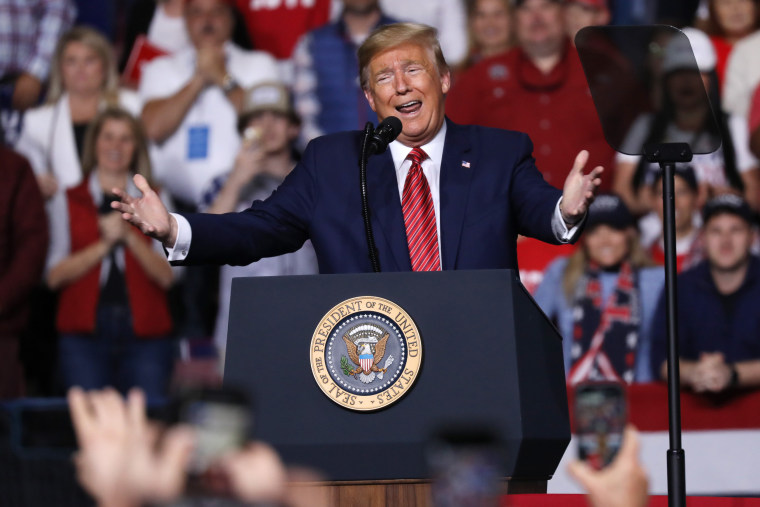Donald Trump spent months attacking his Russia scandal as a "hoax," though it was quite real. Late last year, the president attacked the Ukraine scandal that led to his impeachment as a "hoax," though each of the core allegations was proven true. A couple of weeks ago, the Republican even described his politicization of federal law enforcement as a "hoax," despite the overwhelming evidence.
Trump now believes he's uncovered a new "hoax," which, like the others, is all too real.
President Donald Trump accused Democrats of "politicizing" the deadly coronavirus during a campaign rally [in South Carolina] on Friday, claiming that the outbreak is "their new hoax" as he continued to downplay the risk in the U.S.
In context, there was some ambiguity on Friday night as to what, specifically, the president was referring to as a "hoax." Trump tends to ramble in his unscripted comments, and some believed he was describing the viral outbreak itself.
But at a Saturday press briefing, when a reporter asked him whether he regrets throwing around careless and provocative rhetoric, Trump insisted that what he sees as a "hoax" is the idea that his administration has failed to properly respond to the public-health crisis. "[W]e've done such a good job," he said, adding, "[T]he 'hoax' was used with respect to Democrats and what they were saying. It was a hoax, what they were saying."
Even if one is inclined to give Trump the benefit of the doubt and agree that he wasn't calling the viral outbreak itself a "hoax," there are a couple of glaring problems to consider. The first is, the president's insistence that he and his team have done great work is very difficult to take seriously.
The Washington Post had a brutal report over the weekend, shining a light on "a rudderless response defined by bureaucratic infighting, confusion and misinformation." The article quoted a senior administration official saying, "It's complete chaos. Everyone is just trying to get a handle on what the [expletive] is going on."
This comes on the heels of reports that the president and his team dismantled the White House National Security Council's entire global health security unit, eliminating the positions of officials who are responsible for addressing global pandemics.
It's against this backdrop that the president expressed outrage that anyone would have the audacity to deny that the administration has "done such a good job." It'd be great if that were true, but it's not.
What's more, while Trump's "hoax" line received the bulk of the attention, let's not overlook the fact that he also boasted during his latest rally, "[S]o far we have lost nobody to coronavirus in the United States. Nobody." Though he conceded some Americans might die, Trump quickly added, "[W]e've lost nobody. You wonder if the press is in hysteria mode."
Comments like these reinforce the impression that Trump is desperate to downplay the significance of the viral threat. It doesn't help that within two days of the president's misplaced boast, two Americans died from the coronavirus.

